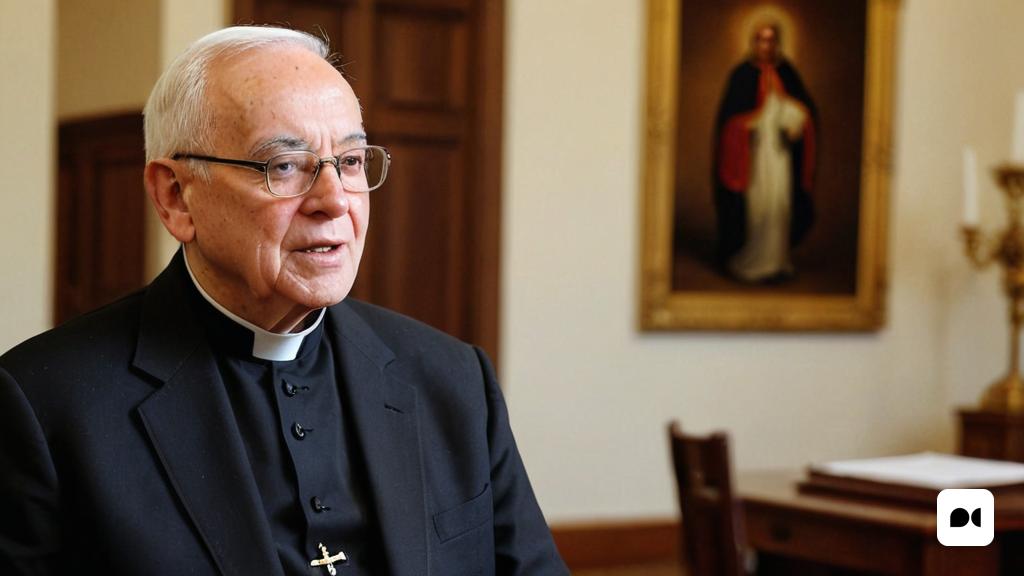A Special Anniversary
The Congregation of the Fills de l’Immaculat Cor de Maria Missionaries, known as Claretian Missionaries, commemorates with great pride 175 years since its foundation by Saint Anthony Mary Claret. This Jubilee Year has been an exceptional opportunity to delve deeper into our origins and revitalize our spiritual path. At the Pare Claret Spirituality House, located in Vic, we had the privilege of speaking with Claretian Carlos Sánchez, who holds the position of general prefect of Spirituality and Community Life of the aforementioned congregation.
The Missionary Dream of Saint Anthony Mary Claret
When he began his preaching work, Saint Anthony Mary Claret found himself in a difficult context, as Spain had spent years without hearing the Word of God. This silence was due to the dispossession of the religious in 1835, who were in charge of transmitting the evangelical message.
An Attractive and Unique Message
Father Claret’s success lay in his innovative and stimulating approach. His way of communicating did not instill fear nor did he speak of hell, as other preachers influenced by Jansenism did. Instead, Claret used accessible and warm language, full of examples from everyday life, which allowed him to connect with people. Likewise, he promoted devotion to the Heart of Mary, interpreting it as a symbol of tenderness and compassion, which attracted crowds to listen to him. Initially, the congregation dedicated itself exclusively to popular missions, spiritual retreats and catechesis. However, over time, it expanded its horizon towards education, driven by the vision of the founder, who urged missionaries to teach the youngest. This objective expanded to missions in non-Christian areas and also settled in parishes, which led to a notable growth of their ministries.
Current Ministries and Their Impact
Today, the congregation continues faithful to Father Claret’s dream, carrying the Word of God through multiple channels. This dissemination is carried out through education, in churches, popular missions, spirituality houses, health and rehabilitation centers, as well as in publications and assistance to religious life. In addition, support is offered to immigrants and those living on the margins. Each of these initiatives reflects the congregation’s commitment to sharing the message of Jesus Christ, whether through words or actions.
Global Expansion and New Communities
The congregation continues its path of expansion worldwide, establishing communities in new places. Recently, we have opened foundations in countries in Africa, specifically in Madagascar and South Sudan, a nation that has suffered the ravages of civil war and is in need of complete reconstruction. Although we already had a presence through an inter-congregational project called Solidarity with South Sudan, this is the first time that we have established a community of our own in the region. In Africa, the challenge is focused on education and social development, together with the vital task of evangelization.
Challenges in Europe, Asia and America
On the European continent, where the congregation was founded, we face the profound challenge of transmitting the faith in a context marked by secularization and providing support to immigrants. We deploy several projects to welcome and care for migrants in cities such as Bilbao, in the Casal Claret in Vic, as well as in the Canary Islands and Marseille. The search to consolidate and open new initiatives in this sense is a priority for us.
In Asia, interreligious dialogue has become a crucial task. In this region, where many religions have been present for centuries in the lives of people, it is essential to open up to the wisdom of these traditions and encourage an exchange that seeks to build a project of humanity aligned with the values of the Kingdom of God. On the other hand, in America, social care is an imperative in hundreds of communities facing poverty and corrupt political systems. Our focus is on education and support for indigenous peoples, ensuring that they preserve their culture with dignity, defend their rights and integrate into the globalized world without losing their essence.

